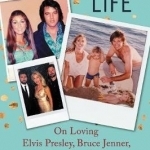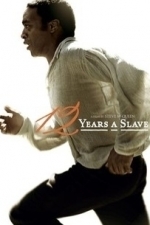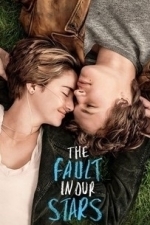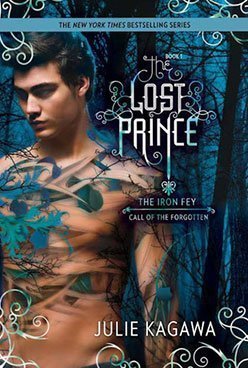
MyVery: Fashion, Trend & Style
Shopping and Lifestyle
App
One of the UK’s leading online retailer is now available on your smartphone! Download the FREE...
Darren (1599 KP) rated 12 Years a Slave (2013) in Movies
Jun 20, 2019
Actor Reviews
Chiwetel Ejiofor: Solomon kidnapped and sold into slavery, not resting on the fact he will never escape he tries over the 12 years to find a way to get his own freedom before finally finding someone to trust enough. Chiwetel is brilliant in the role and fully deserved his BAFTA for best actor. (10/10)
solomon
Michael Fassbender: Edwin Epps the drunken plantation owner who abuses his slaves for his own pleasure, enforced strict rules and taking all the hope out of his slaves. Great performance from Fassbender playing a character that is driven to be hated. (9/10)
fassbender
REPORT THIS AD
Lupita Nyong’o: Patsey one of the slaves on Epps’s plantation who is his favourite as she is the best picker and also he favourite for his sexual pleasures. Great performance, showing that the hope had been taken from some of the slaves. (10/10)
lupita
Brad Pitt: Bass a free roaming labourer who doesn’t turn up to late in the film, becomes the last chance for Solomon. Only a small role but does a good job.(8/10)
pitt
Paul Dano: Tibeats, Ford’s evil slaver runner who pushes all of them to limits they shouldn’t have to go, he thinks he is better than all of the slaves, but Solomon teaches him a thing or too. Good performance from Dano showing he can fit into any role with ease. (8/10)
dano
Paul Giamatti: Freeman the slave sales man who put them all up for show so that the highest bidder will purchase them. Only a small role but affectively showing how the slavery sales were made to be glamorous for what they are doing. (7/10)
paul
REPORT THIS AD
Benedict Cumberbatch: Ford a good man who looks after his slaves, Ford purchases Solomon and is willing to listen to Solomon’s ideas to improve his work. Forced to sell on Solomon, but always looked after them all fair. Good supporting performance and his character reflexes how evil Epps is.(8/10)
benedict
Sarah Paulson: Mistress Epps the wife of Edwin, who has a dislike for Patsey but an almost sympatric side to the rest of the slaves. Good performance and the one scene with Patsey is really stand out. (9/10)
mistress epps
Director Review: Steve McQueen – Brilliant direction to tell such an amazing story of one man’s journey. (10/10)
Biography: Amazing look at how Solomon survived his ordeal. (10/10)
Drama: Stunning look at something that could have been all guns, blood and gore, but focuses on the emotions involved with the people. (10/10)
History: Good look at how people were treated during the slave times. (10/10)
Settings: Beautiful settings used to create the story. (10/10)
Suggestion: This really should be watched by all, but I do feel the more casual film fan may find it hard to watch. (Watch)
Best Part: Chiwetel Performance.
Worst Part: Some of the punishment scenes are hard to watch.
Favourite Quote: Solomon ‘I will not fall into despair! I will keep myself hardy until freedom is opportune!’
Believability: Based on Solomon’s true story. (10/10)
Chances of Tears: No (0/10)
Chances of Sequel: No
Post Credits Scene: No
REPORT THIS AD
Oscar Chances: Won 3 Oscars.
Box Office: $178,413,838
Budget: $20 Million
Runtime: 2 Hours 13 Minutes
Tagline: The extraordinary true story of Solomon Northup.
Overall: Stunning Story
https://moviesreview101.com/2014/05/12/12-years-a-slave-2013/

A Little Thing Called Life: On Loving Elvis Presley, Bruce Jenner, and Songs in Between
Book
Award-winning songwriter Linda Thompson breaks her silence, sharing the extraordinary story of her...

Investagrams
Finance
App
Investagrams is a one stop shop to financial freedom. It provides a handy guidance for people who...

Blinkist - Always Learning
Education and Book
App
Where do the world’s smartest people get their ideas? From great books! Blinkist distills the key...
Sophia (Bookwyrming Thoughts) (530 KP) rated Princess of Thorns in Books
Jan 23, 2020
That particular spawn, who I'm calling Aurora 2.0 (simply because <i>THE</i> Sleeping Beauty was born as Aurora but Stacey Jay calls her Rose), apparently has a brother who gets captured by the ogre queen and she decides to pose as said brother to raise an army to overthrow the ogre queen. Early on in her journey – the beginning of the book, in actuality – Aurora meets Prince Niklaas, son of the immortal king of Kanvasola and wait for it...
Also cursed.
I won't complain too much about <i>Princess of Thorns</i> – it's a neat idea and there's really not much you can do with a retelling of a princess who sleeps a hundred years and gets woken up by a kiss from a prince who goes through thorns and fights a green-fire breathing dragon witch known as Maleficent. I pretty much applaud authors who toy around with Sleeping Beauty – it's interesting to see what comes out of it.
But <b>the book is <i>sooo</i> confusing</b>. From the beginning, Jay quite literally throws us in a world where Aurora is aware of what's going on around her, but <b>I have no clue what's going on.</b> Aurora thinks she's seeing a hottie who she thinks is a "Golden God" – great! But what in the world is going on? All I know is she's been with the fey for ten years and she may or may not be with them right at that time, and whatever was going on for fifteen pages certainly doesn't sound very fey-like. I also know that her mother, the original Sleeping Beauty, is dead.
There were also <b>a few things that just seemed really ridiculous.</b>
The <b>names are just not as creative</b> as Stacey Jay might be aiming them to be. Niklaas, Haanah, Ekeeta, and the name that almost made me bawl in laughter? Nippa. It's almost as though <b>in an effort to "foreignize" the names, Jay either "drawls" out a letter or it justs sounds like another word in the English language (sometimes, it's not even pleasant).</b> In that case, I'll be Sofeeyah.
<b>The entire concept of Aurora dressing up as her brother without anyone being aware was also a bit suspicious.</b> Aurora slips up A LOT in front of Niklaas throughout the journey, and <b>I'm a bit peeved he doesn't even question it THE ENTIRE TIME.</b> If her brother were younger than fourteen and disguised Aurora slipped up a few times, then maybe it would have worked better. But Aurora's captured brother is <i>fourteen</i> – I doubt fourteen-year-old boys sound like high-pitched girls. As much as I applaud Aurora for having the guts to venture out in the world on her own to take down an ogre queen, <b>I just don't buy her manliness.</b>
In all honesty, though, <b>Aurora as a Jor was a lot better than Aurora as a girl</b> – she's desperate as Niklaas gets closer to his eighteenth birthday. It's quite literally, "Dude, come on! Marry me already!" And Niklaas is all mopey. "All is lost. No princess loves me, so dear God and all that is Holy, END THIS AND TURN ME INTO A SWAN ALREADY SO I CAN SWAN THE REST OF MY LIFE AWAY WITH MY SWANNING BROS."
Aurora's approaching meeting with the ogre queen seemed <b>really weird, abrupt, and cheesy</b> – I felt like I just wrote a story in sixth grade where the bad guy goes all, "Oh, I'm so sorry! Let me just accept my punishment and go to flaming Hell." while being completely solemn. And obviously, the story becomes all happily ever after.
The entire explanation makes sense, but <b>the execution just seemed weird and quick</b> and somewhere in the process, the author realized, "Oh, wait. This is going on 400 hundred pages. I better wrap this up and wrap it up quickly, or I'll end up boring the crap out of my readers if I throw in deception and go on 600 or more pages!"
Disclaimer: I'm not making fun of the author. I'm quite literally saying I felt as though I was in sixth grade, writing a story with an actual limited number of pages and I <i>had</i> to wrap it up, so I did it abruptly. That was actually a true story. I did get a decent grade, so I must have done something right, right?
Also, at the time of writing this review, I was feeling more sarcastic than usual (though Lupe and Rundus would probably say I'm sarcastic 24/7). <b><i>Princess of Thorns</i> had a decent idea, but there were quite a bit of bumps and mucho ridiculousness throughout that made the story fall rather than burst out feathers and fly (see what I did there?).</b>
<a href="https://bookwyrmingthoughts.com/review-princess-of-thorns-by-stacey-jay/"; target="_blank">This review was originally posted on Bookwyrming Thoughts</a>

NIV Study Bible
Book and Reference
App
Welcome to the all new, full-color NIV Study Bible! The world's bestselling, most comprehensive...

Barbie Magical Fashion
Entertainment and Games
App
Budge Studios™ presents Barbie™ Magical Fashion, where you can transform into a princess,...
5 Minute Movie Guy (379 KP) rated The Fault In Our Stars (2014) in Movies
Jun 26, 2019 (Updated Jun 26, 2019)
On the surface, it’s easy to dismiss The Fault in Our Stars as being a sappy teenage love affair. I’ll confess that I went into the theater expecting to be fully surrounded by crying teenage girls, while I would be quietly laughing to myself at their heartache. What I surely didn’t anticipate, however, was to be so deeply drawn into the film. Even more surprising is the fact that The Fault in Our Stars has actually turned out to be my favorite movie of the year so far. This is a film that is sincerely heartfelt and unflinchingly genuine. It brings truth to the romantic fantasies we have, and teaches us that we can’t let the fear of possible heartache hold us back from the endless potential of love.
Make no mistake about it, The Fault in Our Stars is a tear-jerker. It’s difficult to watch these lovable characters endure such unjustifiable hardship. Hazel and Augustus are each forced to face a formidable fate that they shouldn’t have to. I really felt a strong attachment to both of them, and found them to be remarkably identifiable. This connection makes it all the more unsettling when their situations turn dire. The reason that The Fault in Our Stars manages to be so effective is because of its authenticity and accessibility. The characters are not only admirable, but relatable. They’re not simply reduced to being unfortunate young cancer patients that we’re meant to feel sorry for. While of course we can sympathize with their condition, it is their compassion and the content of their characters that make them so compelling.
While the film features its fair share of tragedy, I should make it clear that it’s not heart-wrenchingly malicious in the way it deals with its ensuing sadness. This is not a film that is deliberately trying to make anyone feel bad. It is merely being honest in its depiction of the unfairness that often exists in life. While you very well might cry when watching the film, it’s not entirely depressing and hopeless. In fact, I would argue that The Fault in Our Stars is more pleasant than painful. The sadness it makes you feel ends up all being worthwhile because of the joyous, unforgettable memories the movie creates along the way. This is a film that will stay with you long after seeing it. To answer the question you’re all wondering: no, the movie didn’t make me cry. Though my lack of tears is not a particularly good indicator of the emotional quality of the film. I don’t really allow myself to cry during movies, but I certainly came close, and it undeniably left me deeply touched and forever grateful that I watched it.
Being that this is a romance, I must warn you that this isn’t a movie for everyone. Truth be told, I’m a sucker for a good romance, but I’m aware not everyone has the patience for these kind of movies. The Fault in Our Stars is a slow-burning journey that takes its time to relish in the moments. It does this skillfully, maintaining a steady, balanced pace while building up to a powerful climax. Some may find the film to be a little too cutesy, but I think anyone who approaches it with an open-mind will find that it’s legitimately a really great film. My only real criticism of the movie involves the awkward return of a particular character towards the end of the movie. It makes for a rather unwelcome and perplexing intrusion, although it does at least help to set up the film’s wonderful ending.
John Green’s story is refreshing, witty, and modern. It is not only insightful in its depiction of love and life, but also offers an amazing attention to detail. It nails the feelings of love, and perfectly captures the life of being a teenager. The characters created by Green truly come to life in this film. Divergent star Shailene Woodley shines as Hazel, a young woman suffering from terminal thyroid cancer. Additionally, Ansel Elgort is incredibly charming as Augustus, a high school basketball star whose career ended short when cancer turned him into an amputee. The two of them are a perfect complementary match. Laura Dern also puts in a commendable performance as Hazel’s mom, a selfless, loving parent and companion. The film’s soundtrack is sensational. It’s appropriately fitting and delightful, featuring great work by artists such as Ed Sheeran, Birdy, and Ray LaMontagne. Every aspect of the movie comes together to produce a thoroughly poignant and relevant package.
The Fault in Our Stars is a film that speaks to our generation. It stares boldly into our fears of the eminent death that haunts us all, and makes no attempt to glamorize it. Even though it’s about a pair of teenagers, it’s not afraid to deal with mature content. It’s actually all the more engrossing and troubling because these two characters are young. They’re already facing a pivotal time in their lives and are learning to experience the world on their own accord, and yet their journeys are plagued by the callous complications of cancer. Their age gives the film a stronger emotional impact, emphasizing the preciousness of life and the importance of living it to the fullest. The Fault in Our Stars is a smart and stimulating movie, and just like its star characters, it is wholly worthy of remembrance.
(This review was originally posted at 5mmg.com on 7.12.14.)
Sophia (Bookwyrming Thoughts) (530 KP) rated The Lost Prince (The Iron Fey: Call of the Forgotten, #1) in Books
Jan 23, 2020
<ul>
<li>The Iron King</li>
<li>Winter's Passage*</li>
<li>The Iron Daughter</li>
<li>The Iron Queen</li>
<li>Summer's Crossing*</li>
<li>The Iron Prophecy*</li>
</ul>
*Also in The Iron Legends
For those who have followed Meghan's journey from the beginning, remember that cute little boy who was kidnapped and replaced by a changeling? He was later rescued by Meghan. That little boy was Ethan Chase, and 12 years later, after trying to avoid the fey at all costs, the fey comes for him again. All he wants is a normal life learning Kali and be an ordinary guy, even if he can see the Fey.
<div class="separator" style="clear: both; text-align: center;"><a style="margin-left: 1em; margin-right: 1em;" href="http://1.bp.blogspot.com/-AMMqT9VfbJ0/UI81aqQJBbI/AAAAAAAAAkw/0SoygN2dErk/s1600/Snoopy_happy_dance.jpg"><img src="http://bookwyrmingthoughts.bookblog.io/wp-content/uploads/sites/317/2012/11/Snoopy_happy_dance.jpg"; border="0" /></a></div>
I was doing this all day.
*Happy Dance*
Nope. The entrance to the amazing Faery World woven in the awesome works of Julie Kagawa was not randomly picked 2 years ago when I first spot the book at the library. I just made a beeline for it. Maybe not literally a beeline it was actually in Book Battle Club, which I couldn't join (aww)... but the cover and title caught my attention in a nanosecond. And thus, I enter the NeverNever in the likes of daydreaming. (I emphasize Imagination here) ^_^
So, reading the entire series from left to right and hopefully later it'll be right to left... when I saw The Lost Prince in stock at my local bookstore (make that e-book store), I went into immediate squeal-a-thon mode (silently so no one sees me as a crazy girl) and was doing a happy dance the entire time I was reading it. Especially when Puck came in. Puck just somehow always make everything absolutely hilarious with his pranks. The others do too... Puck just has that special Prankster badge hovering around him 24/7. :)
Then there's good old Grimalkin. "I am a cat." Yep, the "obnoxious furball" is back to guide Ethan Chase and Mackenzie (Kenzie) St. James through the NeverNever. I love Grimalkin because he reminds me of Alice in Wonderland's Cheshire Cat, the way he disappears and then appears from place to place. Good thing he doesn't speak in riddles... or does he?
All in all, the book was a page turner. The new cast of characters are just as interesting as the old ones, even if I dislike Ethan in a way. I did grew to like him later though. :) Although I wish the book didn't really end yet, but like all books, even the good ones, eventually come to a stopping point :'(. The good news is that the series isn't over (yay!) so I'm pretty sure I can come and visit my fellow fey friends whenever the next book comes out. But while I'm waiting, I'll go traveling around other worlds. Maybe I'll even re-read the series if I miss the NeverNever too much... or indulge myself in other works of magical realms.
<a href="https://bookwyrmingthoughts.com/review-the-lost-prince-by-julie-kagawa/"; target="_blank">This review was originally posted on Bookwyrming Thoughts</a>



